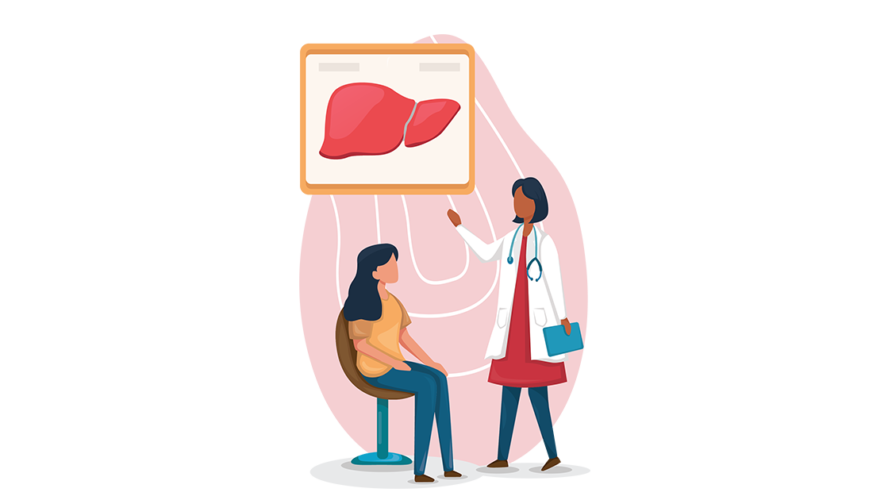
Dr. Omar Elsherif
Consultant Gastroenterologist & Hepatologist, St. Vincent’s University Hospital, Dublin
The symptoms of primary biliary cholangitis (PBC) may not immediately make you think of liver disease — but early diagnosis is crucial.
Early diagnosis can help patients with the chronic liver condition Primary Biliary Cholangitis (PBC) avoid further complications. Symptoms of PBC include itchiness — particularly on the hands and feet — fatigue, loss of concentration and poor memory. It can be debilitating for people with this condition that can have a severe impact on their quality of life.
Routine blood test
Many patients will be unaware they have PBC until it is diagnosed via a routine blood test. Early diagnosis is crucial because the condition can become serious and may even require a liver transplant in severe cases.
Consultant Hepatologist at St Vincent’s Hospital Dublin Dr Omar Elsherif, explains that PBC is an autoimmune condition where the body’s immune system mistakenly attacks the bile ducts, leading to liver damage and reduced bile flow.
“Half of the patients will not have symptoms, and it may only be picked up during a routine liver blood test or blood tests for another reason with their primary care physician who might find an abnormality and steer them to a liver specialist,” he continues.
More women affected
PBC is almost nine times more common in women than men, but we are seeing increasing numbers of men diagnosed with the disease. “It tends to be diagnosed in women over 50, but we are now seeing younger women present with PBC,” says Dr Elsherif.
PBC is almost nine times more common
in women than men, but we are seeing increasing
numbers of men diagnosed with the disease
“Those diagnosed under the age of 50 also have more severe disease that is more likely to result in liver damage. A minority will need a liver transplant. Women in their 30s and 40s can present with a quite severe disease which, if untreated, can have an impact on their quality of life and their life expectancy.”
Aggressive disease
Younger patients tend to have more aggressive disease. Emphasising that lifestyle is not a factor in PBC as it is caused by individuals developing antibodies to a protein in their liver, he says geographical clusters have been identified but with no environmental trigger highlighted. Currently, PBC affects around 40 people in 100,000, which amounts to 1–2,000 in Ireland — many of whom are undiagnosed.
Treatment available
Treatment for PBC typically involves life-long treatment with tablets. Dr Elsherif believes PBC is being more frequently diagnosed but urges patients to visit their GP for a blood test if they are worried that they may have PBC. “The earlier you start treatment, the more effective it is,” he adds.
Manageable condition
Dr Elsherif says it’s important to realise that PBC is a manageable condition. “People should not suffer with the symptoms that are affecting their quality of life — particularly an itch — because we have very good therapies to control it,” he adds.
This article has been organised and funded by ADVANZ Pharma UK & Ireland Limited (“ADVANZ”)
IE/NPR/NP/0004 December 2022


